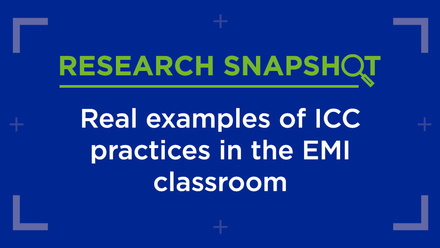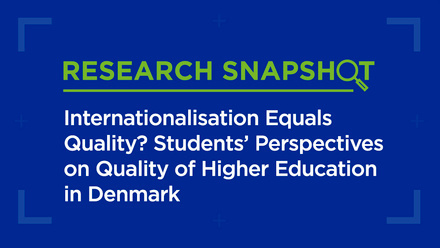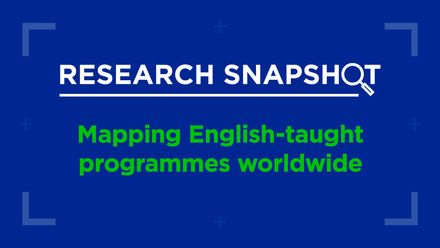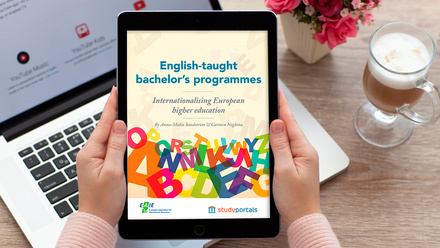English as a medium of inspiration

English-Medium Instruction (EMI) and its spread across Europe in recent years is a well-documented phenomenon. However, despite its widespread use, higher education institutions can still struggle to implement it in a way that is successful and responsible. Come to the workshop at EAIE 2019 Helsinki to learn about the strategies and support practices that can turn English into a medium of inspiration for teaching and learning.
There are various motivations for institutions to engage in EMI, varying from reputational gain to educational quality. But are institutions always aware of why they teach in English and not (only) in the local language(s)? Is it an informed decision by the institution, based on the social and local impact of language choice and the varying realities and needs of different academic subjects, as recommended for example in the foresight study by the Royal Netherlands Academy of Arts and Sciences?
The increasing use of English in teaching and learning is not always smooth sailing. Some argue that learning is compromised when it is done in a second language. Others are concerned about the use and development of discipline-related terminology in languages other than English. Institutions must take these considerations into account when making decisions on EMI.
Integrating EMI
The emergence of EMI in national higher education context constitutes fertile ground for exploring ‘glocalisation’ in education, and a necessary adaptation to the forces of globalisation. Currently the focus of EMI has shifted from (English) language to its goals, methodology, and pedagogical support for teachers and learners, as well as the role EMI plays in the internationalisation of the curriculum.
The quality of teaching and learning in higher education institutions has traditionally afforded greater importance to the disciplinary content knowledge of lecturers than their pedagogical, linguistic or intercultural competences. A more holistic approach to quality allows institutions to move beyond the isolated, optional subjects and activities typical of EMI, to an approach that favours integration. Through providing useful guidelines for university leadership, teaching staff and students, internationalisation of the curriculum allows for such an approach by looking at the curriculum and at student learning (and learning outcomes) through a planned and systematic evidence-based process.
When EMI is practiced responsibly, it can be a source of inspiration
EMI therefore has a direct impact on the very core of an institution’s basic functions (teaching, learning and student support services) and will have to be weighed against the institution’s responsibilities towards its students and teachers, as well as towards external stakeholders. In order to operate responsibly, the decision to provide EMI must be based on an analysis of the aims/mission/strategy of the institution, taking into account both external and internal factors, and the specificities of each discipline.
Get inspired at EAIE 2019
When EMI is practiced responsibly, it can be a source of inspiration – as coined by Dr Ron Martinez of the Federal University of Parana in Brazil – a way for institutions to enhance the quality of teaching and learning. Quality education is directly addressed by the United Nations Agenda 2030’s Sustainable Development Goal 4 Target 7, which mentions, among other things, the "promotion of a culture of peace and non-violence, global citizenship and appreciation of cultural diversity". This target directly links quality to global citizenship, global engagement, and intercultural competence development. In order to integrate such quality within their curricula, institutions require a paradigm shift – one in which interconnectedness is at the core and where there is a shared understanding of integrated learning.
We will be discussing all of this and more at the EAIE Annual Conference in Helsinki in the workshop ‘English Medium Instruction: strategies for success’ (Tuesday, 24 September, 09:00 – 12:30), where participants will be invited to explore the role(s) they have in the implementation of EMI.
Join us and be inspired!






